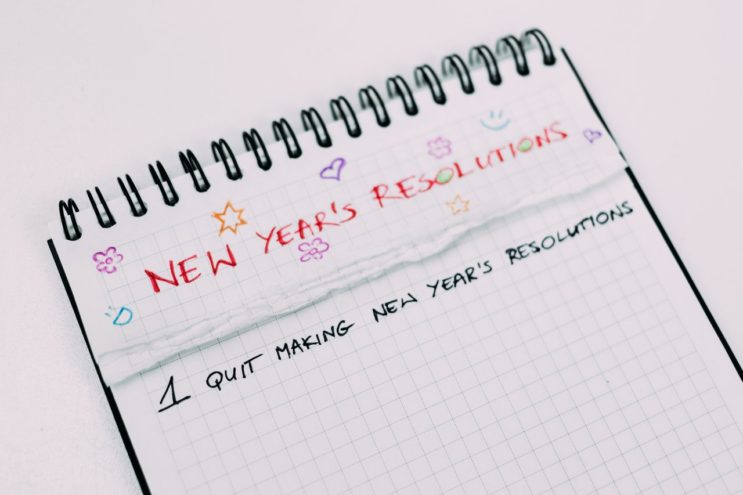As the year 2020 comes to a close, you may start to hear all the “new year, new me” talk.
Let’s get real for a minute.
Do you plan on making a resolution or a commitment?

A resolution is a promise to do something, but commitment involves having a plan that you follow through on.
It’s prior to the new year that we typically tell ourselves that we’ll begin to work on ourselves because it’s a “fresh start.”
There’s a term in behavioural economics called Time-Discounting or as Behavioural Economist, Melina Palmer, likes to describe it, the “I’ll Start on Monday” Effect.
Have you ever told yourself you’re going to hit the gym, eat healthier, or get your finances in order in “the new year”? Then when the new year comes around, you start strong but you begin to see that motivation dwindle down after a few days and tell yourself that you’ll start again…next week, month, or year?
So what happened and why does this feel like it can be a continuous cycle?

I encourage you to read more on time-discounting by reading one of our previous blog posts, but the principle behind this is that when you think about your future self and achieving a milestone, your brain does not realize it will have to achieve all those goals itself. Your mind believes it is talking about an entirely different person; a superhuman who can do anything.
However, when that day comes, and your brain realizes that it must do the work, all the objections and excuses kick in and you feel like today’s version of you can’t start and justifies it by telling you that tomorrow’s version of you can.
As humans, we’re all guilty of doing this, including me, but it plays a significant part in trying to start something that we know is good for us yet put off such as increasing our exercise, improving our diets, or properly managing finances.

How to overcome time-discounting:
- The next time you’re approached with a chore, rather than focusing on the task at hand, keep your vision on the results that you will achieve from your efforts. If you’ve thought about buying a house one day, how will your life change once you have it? If you’ve thought about starting your own business, what would a successful business look like to you? If you’ve felt stressed about money, what do you think you’ll feel like when you’re in control of it?
- Have an accountability partner. A study from Gilovich and Davidai Ph.D. found that having to report to someone can help increase the likelihood of you achieving your goals by 77%. Starting the process might feel difficult, especially if you don’t know where to begin. If you don’t know who can act as an accountability partner, I encourage you to start by reaching out to a professional in the respective field you’re trying to improve in and build a plan together.

I want to see you coming out of your comfort zone this year more than ever!
Build your plan, take action, and remember to continuously look ahead.
“If you don’t design your own life plan, chances are you’ll fall into someone else’s plan. And guess what they have planned for you? Not much.” – Jim Rohn
